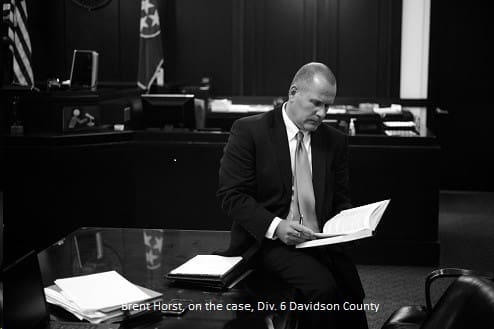When should you NOT spend thousands of dollars to try to beat your D.U.I. … and when you should
Authors note: This Article is targeted mainly toward non-lawyers. Those who suddenly find themselves or someone close to them accused of Driving Under the Influence. As the contents of this article are based almost entirely upon my personal experience and opinions developed from nearly 30 years of criminal trial experience as a prosecutor and defense attorney including at least two hundred criminal jury trials the use of legal and research citations will be omitted. My research is my personal professional experience. The purpose of this article is to provide individuals accused of DUI with basic practical legal information and a framework for things to consider as they begin the process of deciding how to defend themselves. However, such individuals should always keep in mind that every case has unique and challenging facts that may call for different considerations or actions from those discussed in this article. Anyone accused of a crime should follow the advise of an attorney experienced and knowledgeable in the defense of these cases and who is familiar with the specific facts of the individual’s case.
Introduction
Yes, you heard me correctly in the title to this article. An attorney is actually advising you that sometimes it simply is not worth spending thousands of dollars to try to beat your D.U.I. As odd as that may seem, lawyers, as professionals, should always advise clients what is in the best interest of the client not the best interest of the lawyer’s bank account.
Do not misunderstand me. You should consult a lawyer in every case for two reasons. 1) To make sure your situation does not have a unique fact that despite the opinions expressed in this article could make your case different. 2) To make sure you do not get railroaded by an unscrupulous prosecutor taking advantage of an unrepresented defendant. Therefore, while you should consult a lawyer in every case, not every case justifies an investment of thousands of dollars in order to try to beat the case.
D.U.I.
The law and punishment

In most states there are two ways that a person can be guilty of D. U. I.
- When a person has had enough of a legal or illegal intoxicant such as alcohol, or prescription pain killer or marijuana to impair that persons ability to safely drive a vehicle or
- When a person has had enough of an intoxicant that puts them over a set legal limit. In most states that is .08 blood alcohol limit.
A person can be guilty of Driving Under the Influence under either one of these theories or both. For example, even if the amount of alcohol in your system was under the legal limit for your state but the State can prove that your driving was nevertheless impaired you could be guilty of D.U.I. Conversely, if your ability to drive seemed fine but you were nevertheless over the legal limit you could be guilty of D.U.I.
In most states a conviction for a D.U.I. results in a minimum mandatory jail sentence and a loss of your drivers license. The length of the jail sentence and loss of license goes up with the number of previous convictions. In Tennessee, a first offender faces a two-day mandatory jail sentence (or seven days if the blood alcohol level is .20 or higher) and loses their drivers license for one year (driving privileges for work or school can be granted). A Second offense carries 45 days minimum mandatory jail time and a two year loss of drivers license. Subsequent offenses increase the jail time and license suspension.
There are two ways to generally beat the rap on a D.U.I.
- Taking the case to a trial and winning a not guilty verdict (or having the case dismissed on a legal ruling such as the officer conducting an illegal traffic stop).
- Getting the prosecutor to reduce the charge to reckless driving or other substitute offense to avoid mandatory jail or license suspension that a D.U. I. conviction requires.
Factors that affect the ability of your lawyer to beat your D.U.I.
- Prior arrests for DUI (This fact is not likely admissible in a trial but will have an effect on what the prosecutor may offer in a plea bargain. Prior arrests may result in the prosecutor declining to reduce the charge to a reckless driving).
- Your driving. Were you stopped for going 5 mph over the speed limit or were you going the wrong way on a four lane highway and running cars off of the road?
- Do you appear drunk or sober on the traffic stop and field sobriety test video?
- Was there a blood alcohol test (either by breath or blood test) and was the result high or low? Obviously the lower or closer the test result is to the legal limit the more likely it is that the case can be beaten.
- Did you refuse to provide a breath or blood sample for testing?
- Were there any anomalies or errors in the case such as:
- An error report on the breath test print out.
- Mishandled or improperly performed maintenance of the breath test machine.
- Mishandled or lost evidence.
- As stated above was the initial stop of your vehicle by the police officer done illegally
- Is there evidence to support involuntary intoxication or that a medical issue exits which causes the appearance of intoxication.
Weighing these factors and deciding if it is worth the investment to fight
The only factor that is singularly controlling is whether you were stopped illegally. If so that one fact will usually – not necessarily always – result in the entire case being thrown out.
All other factors are looked at in their totality and a determination is then made whether reasonable doubt can be created at trial in order to win a not guilty verdict or whether the prosecutor might be convinced to offer you a reduced charge. For example, if there was no bad driving, and if your blood alcohol limit was .08, and if you appeared sober in the video, and if this is your first offense, there is a high degree of likelihood that the prosecutor can be convinced to offer you a reduced charge. If he does not these facts would certainly justify making the investment to take the case to trial as most competent D.U.I. lawyers with this set of facts would have a very good chance of convincing a jury that the proper verdict is not guilty.
Another example can be found in a case that I am dealing with at the time that I am writing this article. The client looks sober on the video but his breath test was .11. He had a prior arrest for DUI that was reduced to reckless driving. The prosecutor does not want to offer my client a reduced charge feeling he already had his break and did not learn his lesson the first time. Because the prosecutor will not offer us a reduced charge, and because the client looked sober on the video, and because a .11 test result is not too far over the legal limit, I believe we have a chance to convince the jury that the test was wrong based upon the fact that it does not match how the client looks on video and because of some other issues with how the breath test was administered in this case.
Alternatively, if the person appears extremely intoxicated on the video and her test was .16 twice the legal limit that is a very tough case and one that is highly unlikely to be won at trial. This is precisely the kind of case that a person should probably not spend thousands of dollars trying to beat. Even if we can find something wrong with the test in that case the obvious intoxication of the defendant on the video is nevertheless likely to cause the client to be convicted. However, even in such a difficult case unusual facts may justify the investment to fight. I have such a case where the client is obviously intoxicated and had a very high test. However, there is some evidence to suggest someone slipped a drug into her drink at a party. Therefore we are planning on presenting the defense of involuntary intoxication which I believe is a viable defense in Tennessee (that defense may not be available in all states depending upon state law).
Even when the facts indicate that it is highly unlikely that the case can be won there are a few situations where it may make sense to fight the case to the bitter end because sometimes lighting does strike and the unwinnable case can be won thru an incredible stroke of luck. 1) If you are going to lose a very good job if you are convicted, 2) if you have the funds to fight and spending thousands of dollars on a long shot is worth the investment to you. 3) A long delay in the case is needed to allow you to make employment or other adjustments in your life before your conviction occurs. These situations may justify investment to fight the “unwinnable” case and hope that lightning strikes in a good way.

Conclusion
There are many factors that must be weighed in determining whether it is a wise investment to spend thousands of dollars in order to fight to beat your D.U.I. case. Sometimes it makes sense to do just that – other times it does not. I hope this report helps. I am certainly available to discuss your situation with you personally.
Brent Horst, Criminal Attorney. Licensed in Tennessee and Florida

